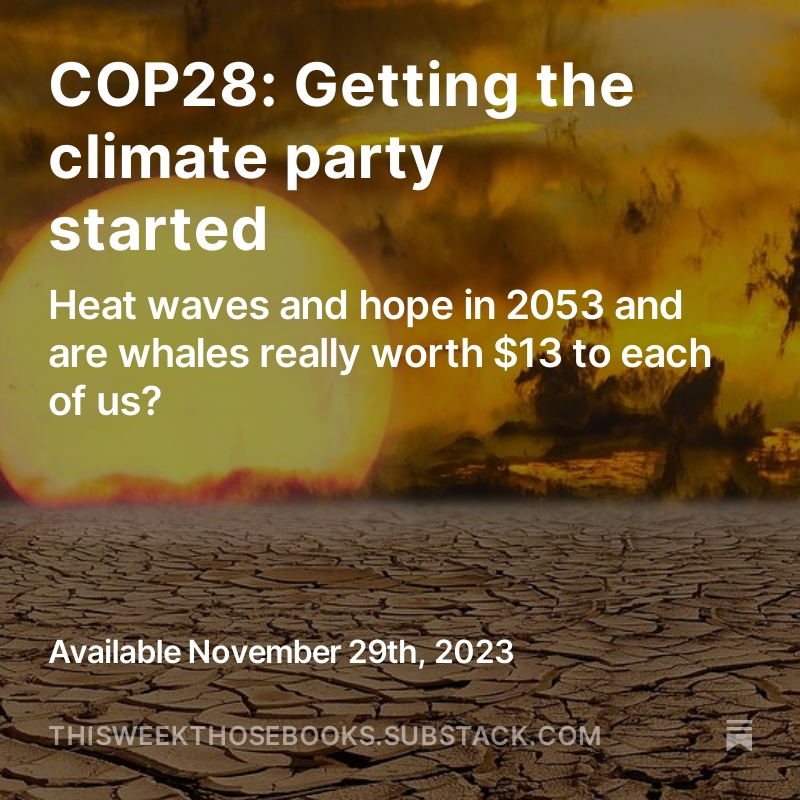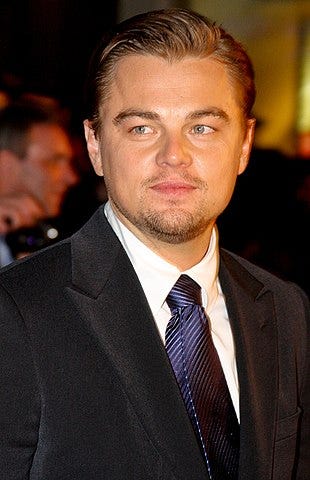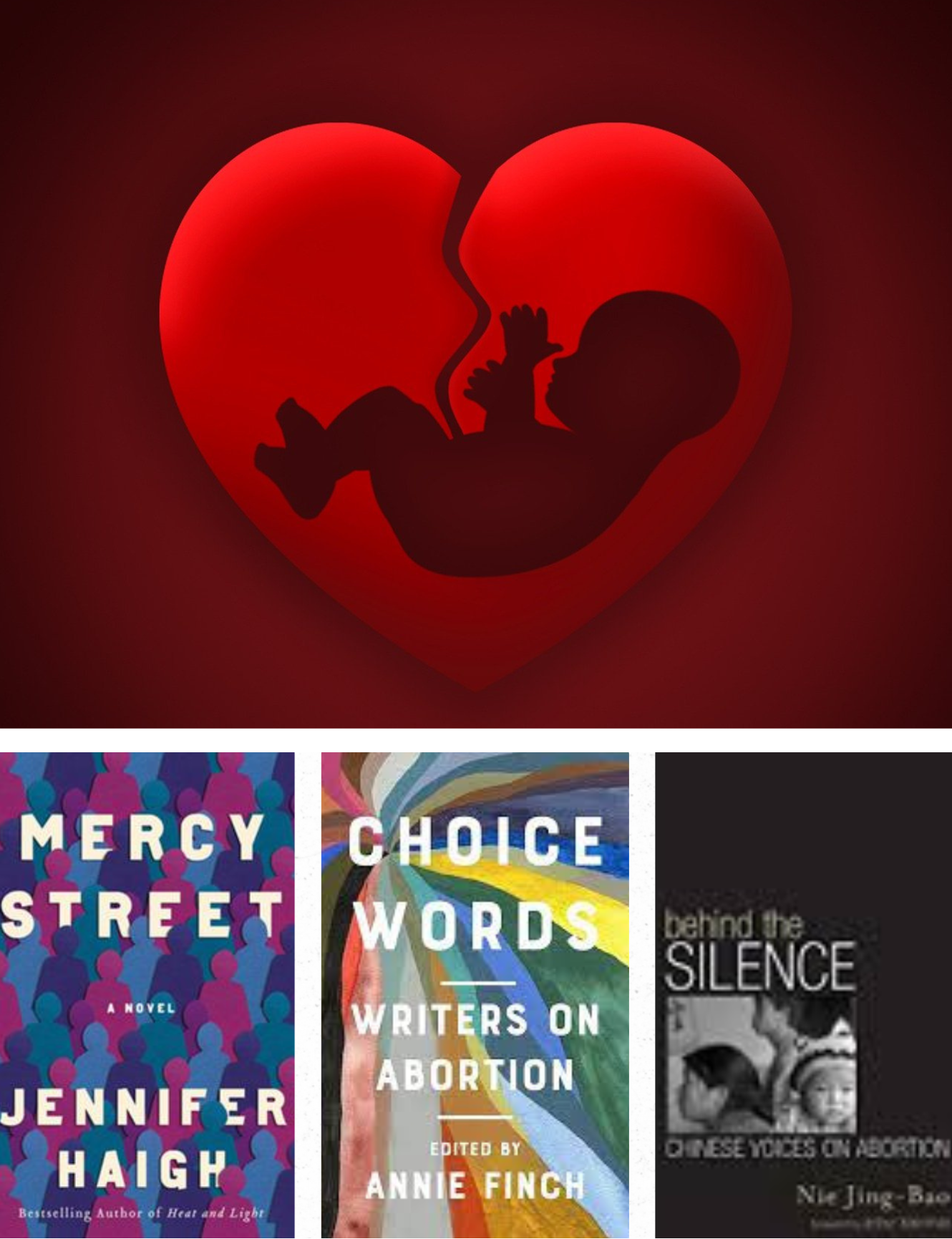COP28: Getting the climate party started

Heat waves and hope in 2053 and are whales really worth $13 to each of us?
Welcome to This Week, Those Books, your rundown on books new and old that resonate with the week’s big news story.
The few minutes it takes to read this newsletter will make you smarter, faster. If you’d rather listen, click on the audio button above for a human, not AI, voiceover by my close collaborator Michael. These book suggestions – complete with summary, quotes and a visceral response rating – could point you to your next read or sort out watercooler convo and supper small talk. Please share. Find me on Twitter, LinkedIn, Facebook or YouTube.
Yours,

The Big Story:
The COP28 climate conference begins in Dubai, United Arab Emirates, and it really is like its acronym – the 28th conference of the parties.
- The COPs held so far have had all sorts of parties – work parties, fringe parties, uber cool parties. But the actual conference of the parties has 198 entities. They are the ones signed up to the United Nations Framework Convention on Climate Change (UNFCCC), an international environmental treaty.
- The treaty’s stated goal is to prevent “‘dangerous’ human interference with the climate system”.
- COP28 will have a “global stocktake”, the first real inventory of what the world has done in the past decade to reduce “human interference with the climate”.
- Some ask the point of these annual COPs when 2023 may end with the dubious distinction of being the hottest year in recorded history.
The Backstory:
- The UNFCCC was signed at the 1992 Earth Summit in Rio de Janeiro. It was the first time most nations agreed that economic development should not harm the Earth’s environment.
- The first COP was held in Berlin in 1995.
- COP3, in Kyoto in 1997, was the first to oblige signatory countries to reduce greenhouse gas emissions. These gases include carbon dioxide, methane, ozone, and chlorofluorocarbons, which absorb infrared radiation from the Earth’s surface and radiate it back to Earth.
- COP21, in 2015, adopted the Paris Agreement, the world’s first binding deal on measures to achieve climate neutrality by 2050. Climate neutrality means that everyone – a country, a business, a family, an individual – should ensure their greenhouse gas emissions are equal (or less than) the emissions that get removed through the planet’s natural absorption.
- The COPs have increasingly become like carnivals, say observers such as Boston University Professor Adil Najam. Often, celebrities show up, notably Leonardo DiCaprio at COP26 in Glasgow in 2021.
- Past the hype, COPs have been effective in keeping climate change on the world agenda.

UN Secretary General Ban Ki-moon designated Leonardo DiCaprio a messenger of peace with a focus on climate change in 2014. Image by Colin Chou, CC BY-SA 3.0
This Week, Those Books:
- A sci-fi novel that offers hope.
- A blistering look at green capitalism.
Read on…





